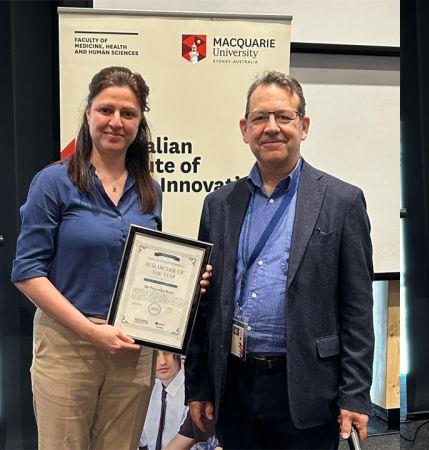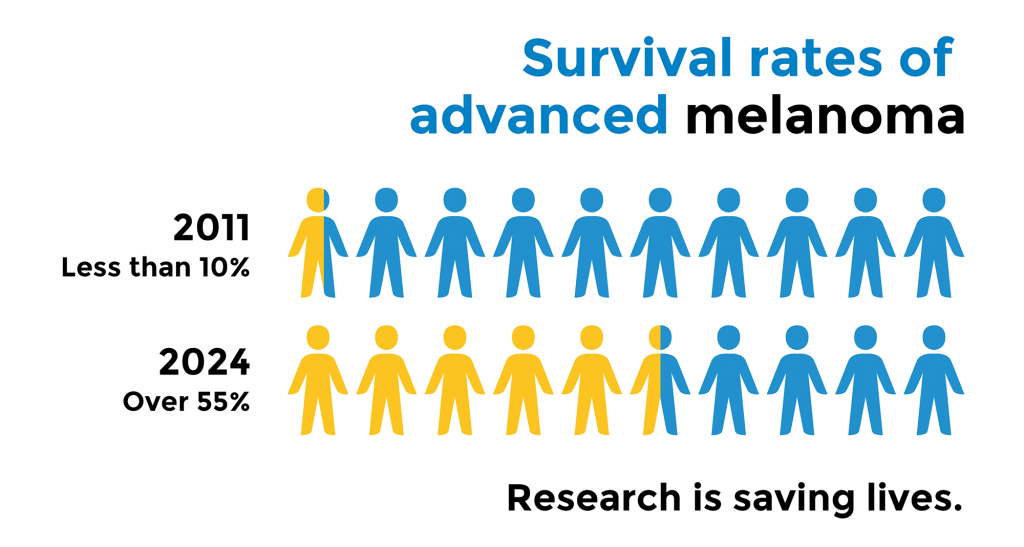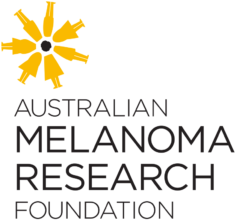2025 Research Grants
We are delighted to announce the AMRF grant recipients for 2025.
Melanoma incidence is set to rise over the next 10 years. More than 200,000 Australians are expected to be diagnosed with melanoma before 2030.
The survival rate from advanced melanoma has improved from less than 10% to more than 55% over the last decade, largely due to improvements in detection and treatment.
It is only through the support of our partners and donors that this trend can continue to improve. Our Research Committee, which includes external experts, has selected four young Australian researchers to receive grants in the 2025 round.
Early Career Scientist Grant recipient for 2025
Dr Priyanka Rana
Macquarie University, NSW
Early Career Scientist Grant recipient for 2025
Dr Jordan Conway
Melanoma Institute Australia, NSW
Early Career Scientist Grant recipient for 2025
Post Graduate Scholar Grant recipient for 2025

Dr Priyanka Rana
Macquarie University, NSW
Immunotherapy has benefited many melanoma patients, but not everyone responds to treatment, and some experience severe side effects. This project aims to develop a multimodal AI model trained on both advanced tissue imaging and clinical data to better guide treatment decisions. Using multiplex immunofluorescence imaging, which detects multiple biomarkers in a single tissue sample, the model will capture a detailed picture of the tumour microenvironment, a key factor in treatment response. Adding clinical data will further enhance the model’s ability to maximise therapeutic benefits while minimising risks
“I’m deeply grateful to the Australian Melanoma Research Foundation for their support, which enables me to contribute to the advancement of personalised cancer care and make a meaningful difference in the lives of those affected by melanoma.”
December 2025 update
We congratulate Dr Priyanka Rana, one of our 2025 AMRF research grant recipients, for her award of “Researcher of the Year” at Macquarie Uni’s Institute of Health Innovation, Centre for Health Informatics.

Dr Jordan Conway
Melanoma Institute Australia, NSW
While immunotherapy has transformed the treatment of advanced melanoma, patients with liver metastases often do not respond as well as others. This project aims to understand why the immune system struggles to fight melanoma in patients with liver mets. By analysing blood samples from patients receiving different immunotherapy combinations, we will uncover how liver metastases affect systemic immune responses. We’ll also explore how well immunotherapy drugs bind to immune cells in these patients, helping us identify potential reasons for treatment failure and develop better ways to monitor and personalise therapy for these high-risk patients.
“I’m incredibly grateful to the Australian Melanoma Research Foundation for supporting this project. This grant enables me to explore critical mechanisms of immune resistance in patients with liver metastases and will generate valuable data to support my future research into personalised treatment strategies. It’s an important step in building my independent research program focused on improving outcomes for patients with advanced melanoma.”


Dr Mary-Ann El Sharouni
Sydney Diagnostic Centre, Royal Prince Alfred Hospital, NSW
My research aims to refine surgical precision for lentigo melanoma by employing a rapid imaging technology, ex vivo confocal microscopy (EVCM), alongside novel fluorescent markers, to ensure complete surgical removal.
“This grant is instrumental to my research, providing the essential funding to execute a groundbreaking pilot study on real-time melanoma margin assessment. It will enable the validation of a novel surgical adjunct, ex vivo confocal microscopy (EVCM), combined with melanoma-specific fluorescent agents, addressing a critical unmet need in current lentigo melanoma treatment by facilitating precise intraoperative decision-making and reducing recurrence rates.”
Nathalie Nataren
University of South Australia, SA
My research analyses gene expression images of advanced melanoma tumours using computational methods to understand the biological reasons why some patients do not respond to immune therapy treatment.
“Receiving this PhD research provides critical support for my research time, enabling sustained and in depth focus on analysing Xenium spatial data in advanced melanoma. It also contributes to research dissemination and computing resources in the aim of understanding immune checkpoint inhibitor response in melanoma.”

Read the 2025 AMRF Melanoma Research Update

Melanoma research
The AMRF is committed to funding research aimed at furthering knowledge and offering better outcomes in the prevention, diagnosis and treatment of melanoma.
The AMRF will focus on supporting early career researchers in Australia.


